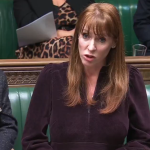Austria is one of the most beautiful countries in Europe. Thanks to its rich history, Austria offers some of the most iconic architecture that Vienna and Salzburg residents enjoy daily.
Those who want to be a part of the Austrian community to avail themselves of its benefits, such as a safe environment and high-quality education, have two options: either to rent or buy property there.
Average home prices in Austria rose by over 13% during the second quarter of 2023. Although Vienna real estate is not that expensive compared to the UK or the USA real estate, not everyone can afford it. Purchasing property might be more complicated than renting it.
In this article, you will learn about what it takes to own or rent a property in Austria, the pros and cons of each option, and which one to go for in your particular situation.
Austrian Property Market for Homeownership
The right of home-owning in Austria is reserved for Austrian residents or foreigners with permanent residency or a residence permit. Citizens of the European Economic Area can enjoy the same rights of property acquisition as Austrians.
The Foreign Nationals’ Property Acquisition Act outlines the process of buying property in Austria. This federal law is in power in nine provinces. Restrictions for buying real estate in Austria for foreigners are also stated there.
The Act states that non-EU residents have to get approved by local authorities to buy houses or flats in Austria. The property acquisition process for foreigners might take up to six months with the inclusion of state fees and extensive paperwork.
However, compared to other countries like the UK, Austrian property is considered to be less expensive. Austrian property market also offers low interest rates and steady yields.
Initial Expenses Encountered by Property Buyers
Purchasing a house in Austria can be a significant financial commitment. But it’s not just the property’s price tag you need to budget for, as there are various upfront costs to consider:
- Commission paid to the agency. The commission is an agent fee percentage that is negotiated upfront and will be detailed in their initial contract with a seller. It’s the money you pay to a real estate agency for finding and securing a property for you. In Austria, it’s 2%-3% of the property price.
- Real estate transfer tax. It’s levied on transactions that cause a change in the ownership of Austrian real estate. The tax is 3.5% of the property price and is generally calculated based on the acquisition price.
- Land registration fee. Filing fee for the application to the land register costs €47 if paid by debit or credit card or electronically by card, or €66 if the application is submitted offline. You also pay 1.1% of the property price for registration of the ownership title to acquire ownership and leasehold.
Apartment Rental Procedures in Austria
The average rent in Austria is €620 a month. The minimum average rent in Austria is €340 which you can find in the Carinthia province. Policymakers believe that everyone should benefit from affordable housing.
Contrary to cities like New York, where people spend half of their income on rent, those who live in Austria spend only one-fifth of their income on rent. Renting prices are regulated by local authorities so that living is more affordable for a household.
Renting a property in Austria is a very common practice. By renting, you won’t be asked to pay a large sum of money upfront. It allows you to stay mobile and change flats every now and then. However, there is relatively strong competition for good rental property in Austria, especially in big cities. Don’t expect lenders to wait for you, as they usually have a queue of new tenants waiting for rental property.
In Austria, you can have three rental agreements:
- fixed-term lease;
- short-term lease up to six months (not regulated by law);
- open-ended lease.
An open-ended lease is the most favourable option for the tenant. By giving a reasonable notice to the landlords, you can end your lease. As an expat, you will find renting in Austria a relatively straightforward process.
An adult over the age of 18 can rent a flat on their own. For foreigners, it’s usually enough to provide proof of identity and sign a lease to start renting a property. However, in some cases, they might be asked to provide their Austrian visa and proof of employment.
Initial Expenses for Prospective Tenants
There are some initial expenses to be mindful of when renting a flat:
- Rental deposit. Rental deposits can range between three and six months’ rent equivalent. It depends on the price class of the properties. You should not pay a rental deposit before the rental agreement is signed.
- Agency and administration fees. You must pay an agent’s fee if you find a flat with the help of a real estate agent. It amounts to two months’ rent and 20% VAT tax. It’s calculated based on the monthly gross rent.
- Monthly rental. It’s a monthly fee you have to pay for renting out a property. In big cities like Vienna, the rent for the average one-room flat is €1,100.
In Summary
Buying a house or renting a flat is a matter of personal preference. If you have enough money and are ready to fulfil all the legal obligations of owning a property, then buying real estate in Austria might be for you. However, if you are not planning to stay in the country for more than a few years and only travel for education, then renting might be a more stress-free option.










